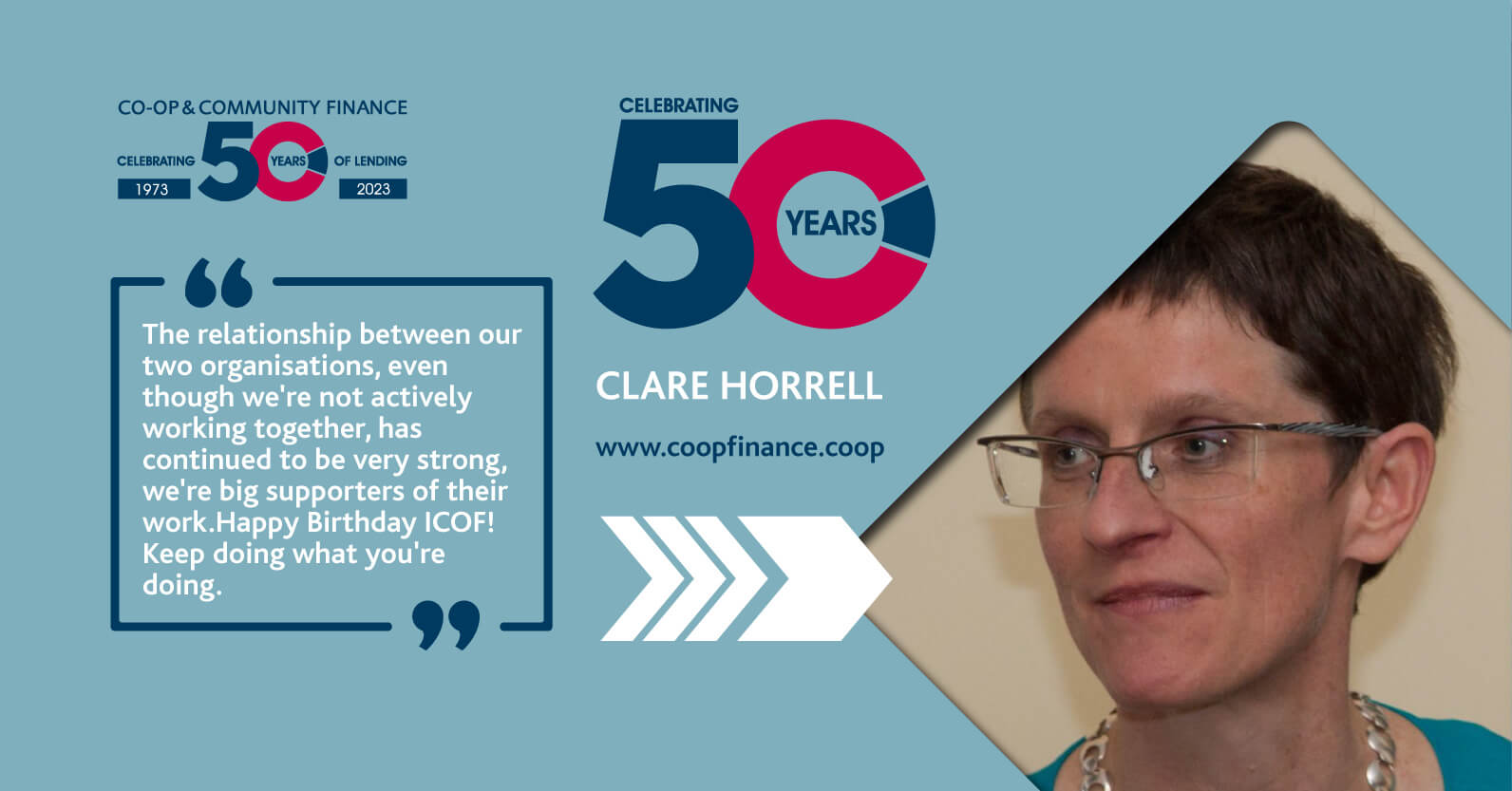Fifty years of friendship and finance – meet Clare Horrell
In our series of interviews with people we’ve worked with over the last fifty years, today we speak to Claire Horrell, one of the executive directors of the Real Farming Trust (RFT).
“I joined RFT in 2015 to run a project called Just Growth. It was a funding program for agro-ecological businesses, and a partnership project between us, ICOF and the Esmée Fairbairn Foundation. The idea was that RFT brought our agro-ecological knowledge and contacts, ICOF brought the loan financing, and then Esmée Fairbairn brought the grant funding, creating a blended financing program. I was brought in to manage that program.
It was a really good partnership. The project aimed to nurture the development of 14 community enterprises that were farming and producing food in an environmentally and socially responsible way over 18 months. We did the agroecological and basic financial due diligence, for example, making sure they had a business plan. We then handed it over to ICOF to do the real nitty gritty financial due diligence. And this partnership working between us and ICOF worked really, really well.
I was working very closely with Ian Rothwell and he was brilliant and very supportive of the projects. It was the first time I’d ever worked with a funder, who was more commercial but held that empathetic view of the challenges that people within the community based sector face, and the experience they had was incredibly valuable. ICOF didn’t lose any of that financial rigour, they never stepped away from asking those hard questions, but they always asked them in a very empathetic way. They weren’t trying to catch people out and people didn’t feel like they were there to try and catch you out. They were asking questions because they reflected on their financial resilience, which was really important for us. It’s less a thing now, but back in the day people’s understanding of the importance of having a grip of your finances and understanding about cash flows, how to run your P&L, was quite limited in our sector. There was sometimes a feeling of, ‘Why do I need to know that?’ which was a legacy of people and organisations being very used to being grant funded. So it was a cultural leap to be saying from the start, ‘We’re going to ask you some tough questions about your finances’.
That way of working helped ICOF to build really good relationships with the organisations that we funded through the program, they were very supportive. Some of the due diligence took a long time and was really quite painful – Esmee Fairbairn provided funding so we could offer some mentoring support to help people through that due diligence process, working on their business plans, their governance structures and all of that so that when we passed them over to ICOF for the financial due diligence they were at least some way to being investment ready. A different funder might have said, ‘Actually, we don’t think this is good enough, go back and do some more work on it’, which ICOF didn’t. They said, ‘Okay, this is a great starting point’.
I always felt there was a culture within the organisation that ICOF really understood the community sector, and that their aim was to support it, whilst not in any way, losing that financial rigour. It really is a cultural thing, rooted in the mission of what is it that ICOF – and we – were really trying to do, But leadership is also key. This culture came in our case from Ian and later on was very much taken up by Tim as well.
There was one project that we kept revisiting. When they first came to us, the business model on paper looked really good, but they were really struggling to put numbers to it, and to develop a proper coherent plan as opposed to just talking a good story. We struggled to find the right mentor for them and they kept coming back and then going away, coming back and going away again. ICOF never said, ‘Oh, not them again’. And it did eventually, all come together. That ability to be patient, and not just bat them away really mattered. I always felt with them the relationship between us was good, they trusted that if we said we wanted to have another look at something, they would.
The relationship between our two organisations, even though we’re not actively working together at the moment, has continued to be very strong, we’re big supporters of their work.
Happy Birthday ICOF! Keep doing what you’re doing.”

